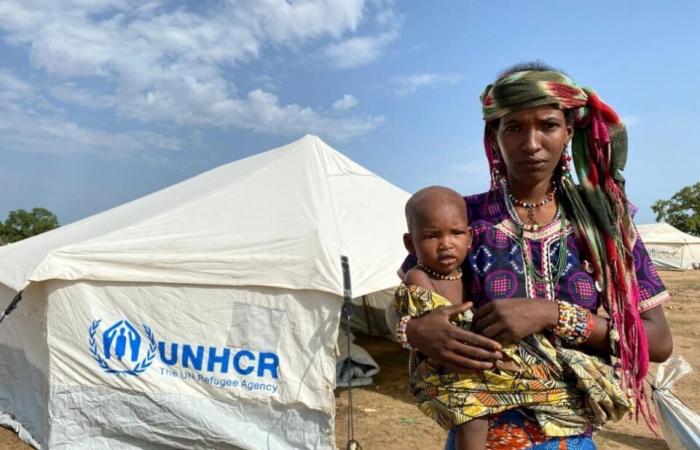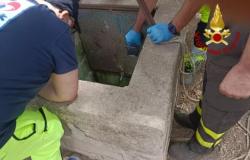UNHCR, the UN Refugee Agency, is calling for urgent international support as the humanitarian crisis in eastern Chad has reached a critical point. Immediate action is needed to address the rising number of Sudanese refugees in border areas, growing health concerns, escalating security incidents and the upcoming rainy season.

A woman in Chad
Since April 2023, the conflict in Sudan has forced more than 600,000 refugees and 180,000 returning Chadians, most of them women and children, to flee to Chad, with more than 115,000 arriving since the start of 2024. This influx has not shows signs of decreasing, with an average of 630 people crossing the Adre border daily in the last month. They are fleeing for their lives from a devastating war that is causing famine conditions in Sudan.
UNHCR and partners expanded existing refugee settlements and created six new ones, as well as built two villages for Chadian returnees. All of these sites are equipped with essential services and infrastructure, including family shelters, mobile clinics, water distribution points, toilets and educational facilities known as temporary learning spaces. However, these efforts are not sufficient to meet excess needs.
A solution is also urgently needed for those new arrivals, now a third of the total, who remain in disastrous conditions in spontaneous sites along the border. The city of Adre, which originally hosted 40,000 people, is struggling to accommodate a population that has increased sixfold.
Adre’s overcrowded and unsanitary conditions have led to a major health crisis, with more than 1,200 cases of hepatitis E reported, including three deaths. The upcoming rainy season, expected between June and September, threatens to exacerbate this crisis, potentially leading to outbreaks of waterborne diseases such as cholera and hampering humanitarian access.


A family helped by UNHCR
Security is also a growing concern, with increased incidents of looting, vandalism of humanitarian facilities, and drug and alcohol trafficking. Tragically, a refugee girl was recently killed by a stray bullet. A series of fires set by disgruntled members of the host community destroyed 235 family shelters at sites hosting repatriated Chadian migrants, sending 1,500 families returning to Adre.
The complex emergency in Chad is worsened by the intensification of fighting in the Sudanese region of Darfur. Despite tireless efforts by UN agencies and partners to support the government’s emergency response, the situation is rapidly deteriorating.
The potential for further fleeing remains high as fighting continues in the town of El Fasher and surrounding rural locations in North Darfur. There are also reports of widespread looting and burning of villages, as well as looming famine in Sudan, which is expected to push even more refugees into Chad. A recent joint monitoring mission by a government partner and UNHCR at the Tine border entry point in Wadi Fira confirmed 300 new arrivals in recent weeks, with refugees reporting harrowing journeys lasting up to 15 days to escape the militias in Sudan. UNHCR reiterates its call on all parties to allow civilians who wish to move in and out of El Fasher to safer areas.


Refugees supported by the UN agency
In this context, the Government of Chad has urgently called on UNHCR and partners to accelerate the relocation of new arrivals away from the border areas, in particular from Adre. UNHCR responded by opening a new site to house up to 50,000 people, but more needs to be done. UNHCR’s 2024 appeal for the response in eastern Chad is underfunded, with just 10% of the requested $214.8 million received so far. Time is running out.
UNHCR works in Chad with some Italian partners, such as INTERSOS and ACRA. Among the twenty most important UNHCR donors, through its contribution, Italy supports people forced to flee hosted by the Government of Chad, contributing to strengthening the protection of refugees along the routes and providing significant alternatives to risky journeys, in particular by providing opportunities for younger people to access education.
To cover immediate needs, UNHCR urgently needs US$80 million to build three more sites with essential services and infrastructure to relocate an additional 150,000 expected new arrivals away from overcrowded and unsanitary conditions and provide them with life-saving assistance, including shelter , food, clean water, access to health and education.
© ALL RIGHTS RESERVED







